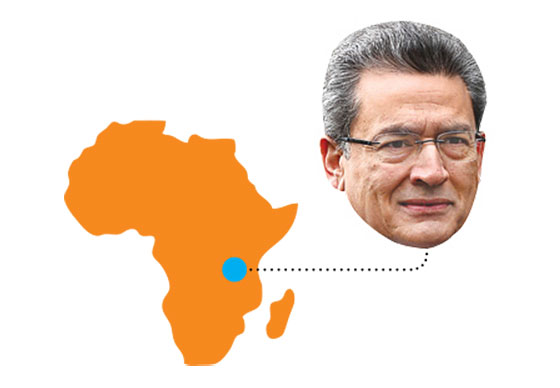
Lawyers for Rajat Gupta, the former McKinsey managing director and Goldman Sachs board member convicted of insider trading, made an unusual request as he awaited his sentencing. Rather than jail time, they suggested, their client should be given a stint of community service in Rwanda, working “to ensure that the needs to end HIV, malaria, extreme poverty, and food security are implemented.” The request was accompanied by a letter from Rwanda’s minister of justice promising close supervision of the felon and urging the court’s support for a “rare, unique” alternative that “might provide future precedent to other situations of similar nature.” In fact, that precedent already exists.
Gupta is not the first disgraced Goldmanite to seek rehabilitation in the African nation, best known for the 1994 genocide that claimed more than 1 million lives. Earlier this year, it emerged that Goldman vice-president Fabrice Tourre, who was accused by the SEC of defrauding investors in one of the most high-profile cases of the financial crisis, had been spending time living in Kigali, Rwanda, and volunteering for a nongovernmental organization there. As he prepares to go on trial next year, the image of the young banker squatting on the ground, being taught to knit by locals, could serve a redemptive purpose.
“From a public-relations point of view, doing work in Rwanda is very astute,” says Tom Zoellner, co-author of the biography of Paul Rusesabagina, whose heroic acts during the genocide were dramatized in the movie Hotel Rwanda. “What happened there was so catastrophic, and it touches a deep nerve of Western guilt, that we allowed that to happen, that it’s been sort of an international-aid darling.” In recent years, both Barclays and JPMorgan Chase have sent charitable delegations to the country, but among banks, Goldman Sachs maintains perhaps the most significant presence, dispatching employees to help train female entrepreneurs in the capital city as part of the 10,000 Women program it launched a few months before the 2008 crash.
For the temporary do-gooder, Rwanda also provides a more pleasant volunteering experience than, say, refugee camps in South Sudan, which aid workers this summer likened to hell. “Rwanda is sort of like Tuscany with banana trees,” says Zoellner. It’s temperate and green, and subsequent to the genocide, President Paul Kagame’s business-friendly quasi dictatorship has maintained social order while seeking to lure foreign investment and turn Rwanda into Africa’s Singapore. “It’s very clean, extremely peaceful, very safe,” says Zoellner, “at the expense of a ruthless crackdown on freedom of expression.” (It is not so unlike the Goldman offices in that way.) But if Rwanda’s justice minister is hoping to make the country into a sort of modern, white-collar successor to nineteenth-century Australia, he may have to wait. In his decision, Judge Jed Rakoff dismissed the idea of what he called a “Peace Corps for insider traders” and sent Gupta to prison instead.
Have good intel? Send tips to [email protected].